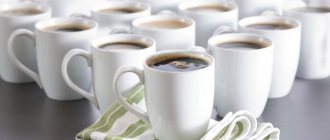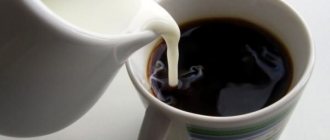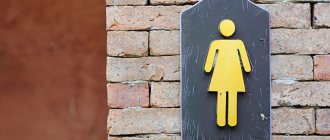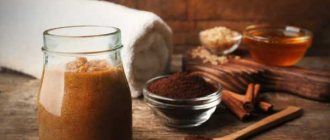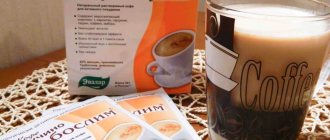Home — Rules for preparing a patient for laboratory and ultrasound examinations — Preparation for blood tests
Food restrictions | Capillary blood | General clinical analysis | Biochemistry | Coagulogram | Hormones | Infections | Glucose tolerance test | TSH | Vitamin D
Blood counts can change significantly throughout the day, so it is recommended to take tests in the morning. For this period, reference intervals for many laboratory parameters have been calculated. This is especially important for hormonal studies.
- All blood tests are done before radiography, ultrasound and physiotherapeutic procedures.
- Do not smoke 2 hours before donating blood.
- For 2-3 days, do not overeat, especially fatty foods, avoid alcohol, intense physical activity, and also do not visit the bathhouse or sauna.
Food restrictions:
- On an empty stomach: at least 4 hours after the last (not large!) meal.
- Strictly on an empty stomach: at least 8 hours after the last meal. In newborns and children in the first months of life, blood sampling is allowed no earlier than 2 hours after eating.
- Fasting: no food intake for at least 12-14 hours.
- Drinking regime . Drinking water does not affect blood counts, so drinking water is allowed (not mineral, non-carbonated). Juice, tea, coffee are prohibited.
What does fasting mean?
Unfortunately, when doctors prescribe various blood tests to their patients, they do not always explain in detail about fluid intake, warning only about abstaining from eating food. Therefore, most people perceive such understatement from the perspective of “what is not prohibited is permitted,” and on the eve of the examination they may drink a lot of not only water, but also other drinks. And this is fraught with obtaining unreliable results.
As usual, doctors, warning patients that tests must be taken on an empty stomach, imply that no nutrients should enter the body before the procedure. As a rule, the recommended time for fasting is at least 8-12 hours, which is easiest to do at night, since it is much more difficult to fast during the day. Therefore, blood tests are taken mostly in the morning.
At the same time, most patients, when preparing for a scheduled diagnostic procedure and remembering the preparation rules, do not deprive themselves of a glass of water or a cup of traditional morning coffee. That is, they do not see this as a violation of medical recommendations, explaining it as the need to quench thirst or to cheer up as usual.
The main problem is that some people interpret the concept of “fasting” literally, namely, abstaining from eating food for some time. However, you need to know the following - everything that is not ordinary water is perceived by the body as food, since almost all liquids contain a certain amount of nutrients.
In other words, it does not matter much in what form proteins, fats, carbohydrates and other active biochemical components are contained. After all, they can be included in solid dishes or dissolved in various types of liquids. As a result of metabolic reactions, nutrients entering the body are transported first into the blood and then into the tissues.
So, for example, juices (even sour ones) and kvass contain a lot of carbohydrates, and, in particular, glucose, which will certainly affect blood sugar tests. Tea and coffee do not contain carbohydrates, proteins and fats, but they are rich in biologically active substances and alkaloids, for example, tannin and caffeine, which can trigger an increase in the production of digestive enzymes and hormones.
Milk and all fermented milk products contain a large amount of proteins and fats. Even seemingly harmless herbal decoctions (chamomile, mint) can trigger excessive production of biologically active substances, which will certainly affect a certain number of blood parameters.
All of the above means that no drink is neutral in relation to the body, since it is a “supplier” of various active substances and is capable of changing the composition of the blood. This is why you should not take anything other than water before a blood test.
Hormones
Blood collection is carried out strictly on an empty stomach: at least 8 hours must pass from the last meal (preferably at least 12 hours). You are allowed to drink water (non-mineral, non-carbonated). It is forbidden to drink juice, tea, coffee. 2-3 days before the test, do not overeat, especially fatty foods. Avoid alcohol, intense physical activity, and do not visit the sauna or bathhouse.
- On the day of blood collection, avoid taking medications; if withdrawal is not possible, inform the laboratory.
- When studying hormones over time, it is advisable to take blood samples at the same time of day.
- Some hormones need to be taken by women on certain days of the menstrual cycle. This information can be obtained from your doctor.
Attention!Q Blood collection for cortisol is carried out strictly on an empty stomach, strictly in the interval from 8:00 to 11:00 (the exact time of venipuncture is indicated).
Is it possible to drink coffee before other tests?
To obtain the most reliable information about the condition of internal organs, other studies are carried out in addition to blood tests. It is advisable to clarify which products are allowed in each specific case and which should be discarded.
Ultrasound
It is recommended to replace coffee with weak tea or water. A small amount is allowed only in case of hypotension. The procedure is usually carried out in the morning on an empty stomach. If it is planned for lunch, then in the morning you can eat a light breakfast.
ECG
Coffee affects the heart, the condition of veins, arteries, this can affect the rhythm and pressure. It is likely that the cardiogram will show mild arrhythmia or tachycardia. Therefore, it is recommended to consume it at least 10 hours before the procedure.
Glucose tolerance test
Attention: A glucose tolerance test is prescribed only after consulting a doctor. This study is not performed for patients with type 1 diabetes mellitus.
Blood collection is carried out in the morning, after fasting: at least 12-14 hours must pass from the last meal.
- Before performing the glucose tolerance test, follow a diet for 3 days (no more than 150 grams of carbohydrates per day), exclude intense physical activity, and do not visit the bathhouse or sauna.
- 3 days before the test, stop thiazide diuretics, contraceptives and glucocorticoids (in consultation with your doctor).
- Do not drink water or smoke during the study. Repeated blood sampling is carried out 1 hour and 2 hours after the “load” of glucose.
Causes of false positive results
ELISA tests the antibodies produced in the body in response to HIV antigens.
- The sensitivity of the method - the ability to detect an antigen if it is present - is up to 99.5%
- The specificity of the method is the ability to determine exactly the desired antigen - up to 99.9%.
In some situations, the rate of false positive results increases. This happens if the body has antibodies similar to antibodies to HIV. This can happen:
- in the presence of autoimmune diseases;
- in conditions after organ transplantation;
- for acute viral infections;
- during pregnancy;
- after vaccination against viral infections;
- after participating in HIV vaccine trials.
Also, technical errors when performing analysis in the laboratory or non-compliance with recommendations for preparing for testing can lead to a false positive result. Therefore, every positive HIV test result requires additional testing!
Preparing for a thyroid-stimulating hormone (TSH) test
TSH levels are the most sensitive test for assessing thyroid function. However, it remains the most frequently deviating from the reference interval among all hormonal studies. To obtain reliable results, in addition to the general rules for preparing for laboratory tests, it is important to follow the rules below:
- The TSH level changes significantly during the day: its highest concentration is determined in the morning, and its minimum in the evening. You should donate blood at the same time, especially in case of repeated tests, since the time of blood donation plays an important role in the interpretation of the TSH level.
- In the case of thyroid hormone replacement therapy, it is necessary to take the drug after drawing blood for testing. Taking thyroxine and iodine the day before the test does not affect the TSH concentration. It is advisable to carry out repeated studies of TSH levels in order to monitor therapy no earlier than 6 weeks after changing the dose or type of drug.
- It must be remembered that the TSH result may be distorted by the effects of medications taken or the products of their metabolism. Before donating blood for analysis, you should consult your doctor about the possibility of limiting the intake of medications during the period of preparation for the study. It is recommended that you stop taking medications, including dietary supplements, before the study. If it is impossible to stop taking medications, you should provide the name of the drug and the time of its last use when donating blood.
- The thyroid gland is associated with the work of many organ systems, disorders in which can affect the secretion of the hormone: acute and chronic stress, acute infectious diseases, disorders of lipid and vitamin metabolism, leading to excess cholesterol, homocysteine, as well as disturbances in sleep patterns and wakefulness at night, which disrupt the normal rhythm of TSH secretion. The influence of these conditions must be taken into account when interpreting the results if it is not possible to postpone the study to a later date.
- Different research methods may be used in different laboratories, therefore, in order to correctly evaluate the research results, it is necessary to conduct research in the same laboratory and on the same analytical system.
Blood sugar levels
lThe normal blood sugar level for an adult is:
- 3.3–5.5 mmol/l (when collecting capillary blood)
- 3.7–6.1 mmol/l (at sampling)
If the level is exceeded above 6.1 mmol/l, it is necessary to be examined.
In order for your results to be reliable, you need proper preparation for the sugar test.
General urine analysis
On the eve of submitting urine for analysis, it is not recommended to eat fruits and vegetables that can change the color of urine (beets, carrots, etc.), not to take diuretics, and to avoid significant physical activity.
Before collecting urine, it is necessary to perform a thorough hygienic toilet of the genitals. Women are not recommended to take tests during menstruation.
To properly collect the material, release a small amount of urine (the first 1-2 seconds) into the toilet, and then, without interrupting urination, place a container to collect urine. To donate, you need to collect approximately 50 ml.
The material must be delivered to the laboratory in the morning of the same day. You should not store urine for a long time, because... this leads to a change in its physical properties, the proliferation of bacteria and the destruction of sediment elements.
Rules for collecting stool
Before submitting the material (3-4 days before), you must stop taking medications (laxatives, castor and petroleum jelly, rectal suppositories). Stool obtained after an enema or barium intake (during X-ray examination) is not allowed for examination.
Before collecting the test, urinate in the toilet. Next, by natural defecation, collect the stool in a bedpan (previously washed and dried). Feces are collected in a clean, disposable container, no more than 1/3 of its volume.
The material must be delivered to the laboratory within 3 hours from the moment the analysis is collected. During this period, it is advisable to store the analysis in the cold (+2...+8C), avoiding freezing.
What about water?
The list of specified restrictions on the intake of liquids reasonably leads to the question: “Can I drink water?” Indeed, ordinary, boiled clean water is an absolutely neutral substance.
In a number of certain situations, the use of clean drinking water can cause distortion of test results. This mainly depends on what type of blood test is prescribed for the patient. Without knowing this parameter specifically, it is impossible to give a definite answer to the question regarding drinking water before the blood donation procedure.
Analysis for enterobiasis
To conduct a laboratory test for enterobiasis, material from the external imprint is taken from the perianal folds. The procedure is carried out immediately after sleep, early in the morning, before defecation and washing. The fence is carried out using a plastic transparent spatula with water-based glue applied to it. To do this, you need to spread the buttocks and apply the spatula with the sticky side to the perianal folds.
After receiving the print, the spatula is placed in a container for transportation. The container label indicates the name and date. The container with the material is delivered to the laboratory; if necessary, it can be stored for 3 days, protected from light at room temperature (+18 - +22C).
A container for collecting material can be taken in advance from the Laboratory office at the address: Obninsk, st. Aksenova, 6a.
General recommendations
In this regard, there are other subtleties regarding various methods of collecting biomaterial. A significant part of medical experts say that before the procedure of taking blood from a vein, the patient needs to drink several glasses of water. Otherwise, that is, if you abstain from drinking, in their opinion, difficulties may arise in collecting a sufficient amount of blood for diagnosis.
If a person is in doubt about the volume of liquid allowed for consumption, then in any case the best option would be to ask the doctor who issued the referral for the test.
On the other hand, do not forget about a reasonable approach to any situation. So, for example, it is not recommended to drink a lot of water if you are not thirsty. In the same way, there is no need to suffer from the desire to satisfy it if it is too hot outside or indoors.
You should not expose your body to artificially generated stress, as this can distort test results to a much greater extent than one glass of ordinary water, drunk as needed, or refusing an extra portion of liquid.
Smear in women
At least 36 hours must pass after the last sexual intercourse.
If you were treated with antibiotics, you must first complete the course of treatment, and then wait at least 3 weeks before taking the test.
You cannot take a smear test if women are menstruating or have uterine bleeding.
Before taking a smear, you should not wash yourself, much less use antibacterial soap.
You should not urinate for at least 3 hours before the test. The rule applies to both women and men.
If women have not yet completed treatment, they are taking medications, inserting vaginal suppositories, they must tell the doctor about this, then they cannot take a smear.



